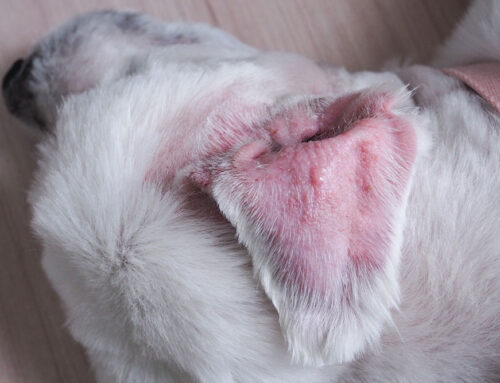Dogs naturally love to root around in the dirt. Whether digging or snuffling through leaves, they may unearth something more troubling than an earthworm or bug; they may come in contact with parasites, infectious diseases, or fungal spores. Beneath the soil’s surface lies a hidden world fraught with potential hazards that can harm your furry companion. Our Valley Center Veterinary Clinic team dishes the dirt on how soil can sicken your pet.
Parasite eggs: Tiny menaces to pets
If your pet comes in contact with parasite eggs lurking in the soil, they can contract a life-threatening disease. Parasites, such as roundworms, hookworms, lungworms, and whipworms, deposit their eggs in the soil through infected animals’ feces. These minuscule eggs can survive in the environment for extended periods, waiting to be consumed or absorbed by wildlife and pets.
When your pet comes into contact with contaminated soil, mainly through licking or ingesting it while rooting around, they risk becoming infected with these parasites. To mitigate this risk, our veterinarian recommends regularly deworming your pet and preventing them from playing in soil, especially in areas frequented by other animals. Once inside your furry pal’s body, parasite eggs hatch, becoming larvae, which can cause several health issues, including:
- Vomiting
- Diarrhea
- Weight loss
- Anemia
- Unexplained bleeding, common in lungworm infection
- Organ damage in severe cases
Viruses: Invisible pet foes
In addition to parasite eggs, soil can harbor viruses that threaten your four-legged friend’s health. Viruses, such as parvovirus and canine distemper, can persist in the environment for extended periods, remaining infectious even in the absence of a host.
If your pet comes into contact with contaminated soil, they can inadvertently pick up viruses on their paws and fur or through direct contact with contaminated surfaces. Once introduced into your furry pal’s system, these viruses can cause serious, sometimes life-threatening, health complications, particularly in puppies or pets with compromised immune systems.
To protect your furry pal from viral threats, ensure they’re up-to-date on their vaccinations. In addition, prevent them from accessing areas where viral contamination is high, such as places frequented by stray or sick animals, dog parks, or other areas where pets congregate.
Fungus spores: Hazardous to pets
Fungi are another group of soil organisms that are hazardous to pets. Certain fungi types, such as those belonging to the genus Aspergillus and Coccidioides, can produce airborne spores and settle in the soil, particularly in warm and humid environments.
If your pet digs, plays, or simply strolls through contaminated soil, they can inadvertently inhale or ingest fungal spores, putting them at risk of developing fungal infections such as valley fever. These infections can affect your pet’s respiratory system, causing coughing, difficulty breathing, and lethargy.
To reduce your pet’s risk of encountering harmful fungus spores in the soil, be mindful of areas where such spores are likely present. Regions with high humidity levels or where soil disturbance is common, including agricultural fields, often harbor fungus spores.
Leptospirosis: A serious risk to pets and people

Commonly called lepto, this bacterial infection is spread through contaminated water and soil, in areas where infected pets and wildlife frequent. More alarming, this dangerous bacteria can live in soil and water for several weeks to months. Leptospirosis in pets can produce the following signs:
- Fever
- Lethargy
- Abdominal pain
- Diarrhea
- Weakness
- Muscle pain
Lepto is a zoonotic disease, meaning it can be spread between animals and humans. Take precautions and talk to our veterinary team about the leptospirosis vaccine and your furry friend’s lifestyle and risk. Also, avoid allowing your pet to drink from or root in potentially contaminated water and soil.
While dirt may seem like an innocuous playground for your furry friend, soil harbors myriad unseen dangers that can jeopardize your pet’s health. By understanding these risks and implementing preventive measures, you can help your pet stay safe when they explore the great outdoors. Contact our Valley Center Veterinary Clinic team to learn more about keeping your pet safe from outdoor hazards.







Leave A Comment